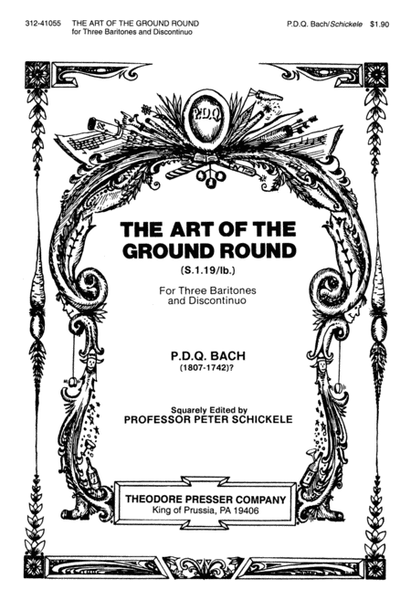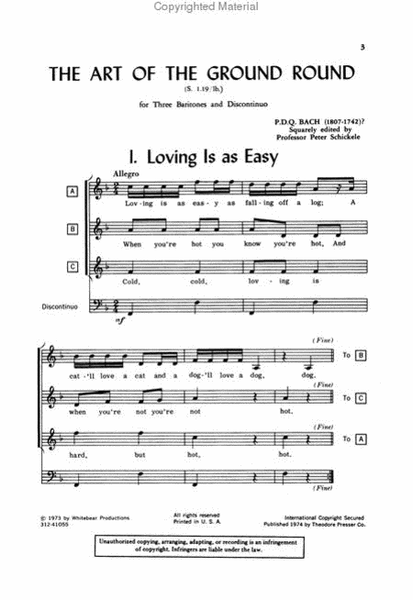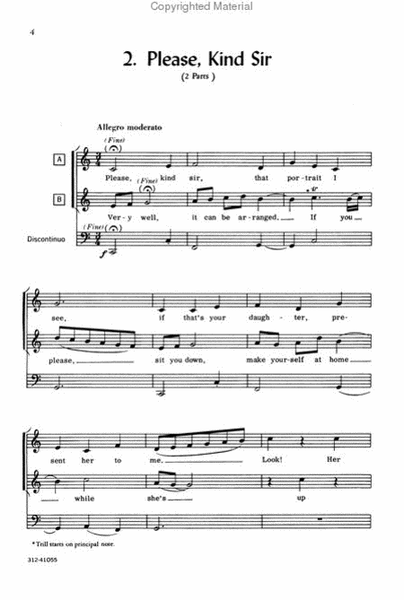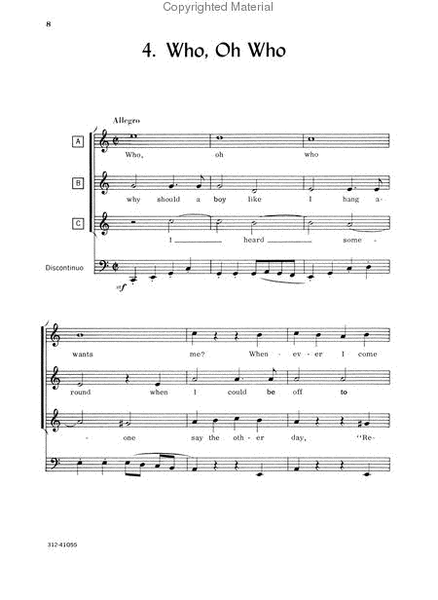The Art of the Ground Round
for Three Baritones and Discontinuo
-
Ships in 1 to 2 weeks
Details
Description
SKU: PR.312410550
For Three Baritones and Discontinuo. Composed by PDQ Bach. Edited by Professor Peter Schickele. SWS. Choral. Performance Score. With Standard notation. S 1.19/lb. 16 pages. Theodore Presser Company #312-41055. Published by Theodore Presser Company (PR.312410550).UPC: 680160045006. 6.875 x 10.5 inches. English. Text: Peter Schickele.
Art of the Ground Round has three part voice and is arranged by Peter Schickele. A great choral piece!.
P.D.Q. Bach was as unusual among eighteenth century composers as eighteenth century composers were among him. Perhaps because of this isolation, this last and least of the towering Johann Sebastian Bach's numerous offspring write a great body of music that is characterized by its lack of body and greatness. THE ART OF THE GROUND ROUND is uniquely typical among P.D.Q.'s works, especially in its use of the discontinuo. Most pieces had a so-called contunuo part, which consisted of a bass line with chord symbols, to be played by a bass instrument and a keyboard; the left hand on the keyboard played the bass line and the right hand improvised on the basis of the chord symbols. P.D.Q. Bach's problem was that towards the end of his life he got so fat that he couldn't reach the keyboard simultaneously with both hands. So he simply played the bass line and forgot about the improvising (which was the harder part anyway), or probably more often didn't play at all, leaving the bass line to the bass instrument and himself free to drink beer.A ground round is a round sung over a ground, or repeated bass line. Its use is as old as it is infrequent, and in fact one of the oldest notated pieces of English music is the famous ground round, Sumer is icumen in. Most of the rounds in THE ART OF THE GROUND ROUND are of a type fancied by certain sixteenth and seventeenth century English composers: they reveal, when sing together as a round, levels of meaning that are not apparent when the parts are sung individually. Whether P.D.Q. knew what he was doing, or whether the hidden meanings were accidental, is a moot point, as is almost everything he did. In fact, one of the many revolutionary aspect of this much and understandably neglected composer is that, years before the blossoming of romantic "atmosphere" record albums, P.D.Q. Bach was writing moot music.
Song List (6)
- I. Loving Is as Easy
- 2. Please, Kind Sir (2 Parts)
- 3. Jane, My Jane
- 4. Who, Oh Who
- 5. Golly, Golly, Oh
- 6. Nellie Is a Nice Girl




 Share
Share